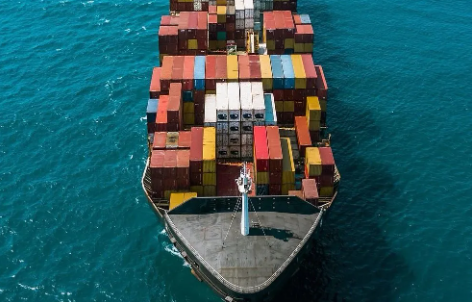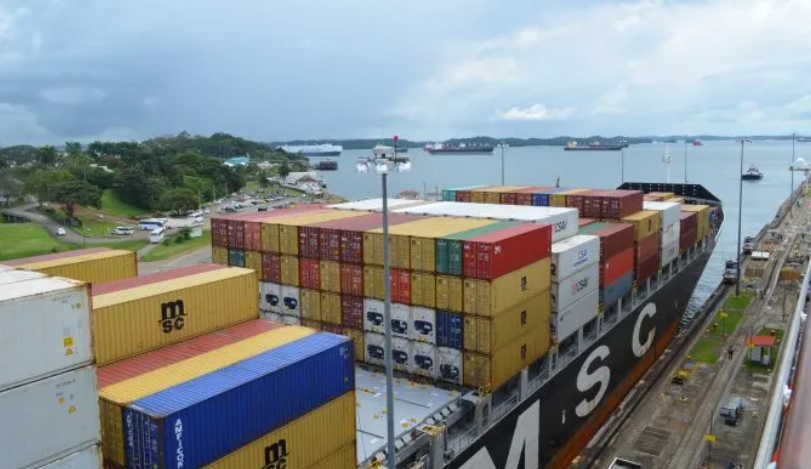Israeli carrier ZIM is seeking to enhance its underperforming India trade lane services through a new strategic alliance with Mediterranean Shipping Company (MSC).
According to ZIM India sources, the emerging vessel-sharing plan includes a weekly direct service from India’s western ports to the U.S. East Coast. “We have plans for a service directly connecting Nhava Sheva and Mundra to North America, with details still being finalized,” they noted. Currently, MSC operates two India-U.S. services weekly, Indus and Indusa.
In the India-North America trade lane, ZIM has long relied on transshipment routes originating from Colombo, Sri Lanka, as part of its Asia trade network. This standalone transshipment loop, known as ZIM New Frontier (ZNF), includes calls at Laem Chabang, Singapore, Tanjung Pelepas, Salalah, New York, Norfolk, and Savannah.
Starting February, ZIM will join MSC as a partner on the updated eastbound leg of the latter’s Asia-America service.
ZIM’s participation, branded as Z7S (ZIM Seven Stars), will cover a round-trip itinerary of Singapore, Laem Chabang, Yantian, Cai Mep, Singapore, the Suez Canal, New York, Baltimore, Norfolk, the Suez Canal, Colombo, and Singapore.
However, ZIM India sources remained non-committal about the imminent return of transshipment via the Suez Canal.
MSC stated in a customer advisory: “In addition to the existing Asia export services, the standalone east-west network will offer unparalleled continental trade connectivity for Asia through extensive loops, competitive transit times, and frequent direct port calls.”
Colombo serves as a key transshipment hub for Indian trade, particularly for the southern corridor around Chennai, which has historically faced challenges with mainline connectivity.
From a broader industry perspective, MSC’s expansion in Colombo appears to have additional “terminal strategy” implications. The service expansion is aligned with Adani Group’s anticipated launch of its Colombo container terminal project, CWIT.
Adani recently received the first five cranes for the terminal, with initial operations expected to commence in Q1 2025. This project is critical for Colombo to handle growing transshipment demand.
MSC holds strategic equity stakes in Adani Ports' terminals in India, including Mundra (west coast) and Ennore (east coast). Speculation suggests MSC is exploring ways to integrate its terminal investments and replicate its proven business model at more Adani ports as the industry increasingly pursues supply chain integration.
Interestingly, Adani’s latest project in India, Vizhinjam Port, aims to redirect transshipment cargo traditionally routed via Colombo. However, Adani’s close ties with Colombo also create a paradox, as its efforts to undermine Colombo’s dominance through Vizhinjam add an ironic twist.
In addition to growth in Colombo, MSC has extended its Jade and Dragon services covering Asia-Europe trade to Vizhinjam, marking the debut of weekly mainline connections from the deep-water port, home to Asia’s first semi-automated container terminal.
An industry observer commented, “MSC has adopted a highly opportunistic approach on India routes, often leveraging dedicated terminals to deploy feeder services for transshipment. It remains to be seen how MSC and Adani will align their long-term business strategies in the region.”

Last
Ocean and Premier Alliances to Jointly Operate Transatlantic Service Network
Following the announcement by Japan’s Ocean Network Express (ONE) to collaborate with Ocean Alliance carriers on three transatlant

Next
Two Major Shipping Lines Announce New Surcharge for US East Coast Shipments, Effective January 1
Two leading shipping companies have announced the introduction of a new Panama Canal surcharge for the Asia-US East Coast trade la




